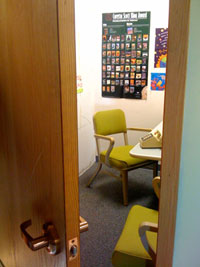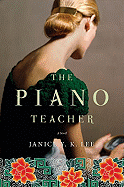 A few years back Elmore Leonard wrote a brief piece for the New York Times (later published as a short book) detailing his 10 Rules of Writing. His list included many practical tips: avoid prologues, keep your exclamation points under control, try to leave out the parts that readers tend to skip. Inspired by his list, the UK’s Guardian newspaper has solicited writing tips from a veritable who’s who of contemporary authors. Speaking to everyone from Margaret Atwood to Jonathan Franzen, Neil Gaiman to Joyce Carol Oates, and many, many more fiction and non-fiction writers, the Guardian has compiled a lengthy list of helpful tips for writing that manage to be practical, profound, funny, and motivational in equal parts. Below is a sampling of our favorites culled from the lists. For the Guardian’s complete “Rules for Writing Fiction,” click here.
A few years back Elmore Leonard wrote a brief piece for the New York Times (later published as a short book) detailing his 10 Rules of Writing. His list included many practical tips: avoid prologues, keep your exclamation points under control, try to leave out the parts that readers tend to skip. Inspired by his list, the UK’s Guardian newspaper has solicited writing tips from a veritable who’s who of contemporary authors. Speaking to everyone from Margaret Atwood to Jonathan Franzen, Neil Gaiman to Joyce Carol Oates, and many, many more fiction and non-fiction writers, the Guardian has compiled a lengthy list of helpful tips for writing that manage to be practical, profound, funny, and motivational in equal parts. Below is a sampling of our favorites culled from the lists. For the Guardian’s complete “Rules for Writing Fiction,” click here.
Rose Tremain: Never begin the book when you feel you want to begin it, but hold off a while longer.
David Hare: Write only when you have something to say.
Annie Proulx: Write slowly and by hand only about subjects that interest you.
P.D. James: Increase your word power. Words are the raw material of our craft.
Will Self: Always carry a notebook. And I mean always. The short-term memory only retains information for three minutes; unless it is committed to paper you can lose an idea for ever.
Geoff Dyler: Have regrets. They are fuel. On the page they flare into desire.
Jonathan Franzen: It’s doubtful that anyone with an internet connection at his workplace is writing good fiction.
Helen Dunmore: Finish the day’s writing when you still want to continue.
Zadie Smith: When still a child, make sure you read a lot of books. Spend more time doing this than anything else.
Roddy Doyle: Do not place a photograph of your favorite author on your desk, especially if the author is one of the famous ones who committed suicide.




 It’s Oscar time again.
It’s Oscar time again. 
 Doubt
Doubt


 Vikas Swarup is a diplomat and an author. His first novel, 2005’s
Vikas Swarup is a diplomat and an author. His first novel, 2005’s 